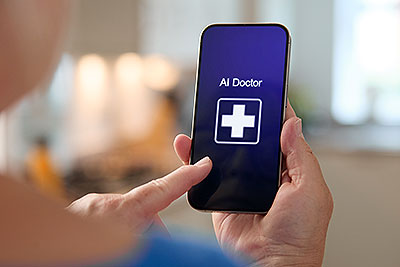The integration of AI in healthcare systems across Europe is not just a technological advancement; it’s a transformative force reshaping patient care and operational efficiency. From early disease detection to administrative automation, AI is proving instrumental in enhancing outcomes and reducing costs.
Early Detection and Diagnosis
AI’s capability to analyse vast datasets enables earlier and more accurate diagnoses. For instance, AI algorithms can interpret medical imaging with remarkable precision, assisting radiologists in identifying conditions like cancer at stages when treatment is more effective and less costly. This not only improves patient survival rates but also reduces the financial burden on healthcare systems.

Personalised Treatment Plans
By leveraging patient data, AI facilitates the development of personalised treatment regimens. This tailored approach ensures that patients receive therapies best suited to their unique genetic makeup and health profiles, enhancing efficacy and minimising adverse effects. Consequently, resources are utilised more efficiently, and patient satisfaction increases. biotech-spain.com
Administrative Efficiency
Administrative tasks often consume significant time and resources in healthcare settings. AI streamlines processes such as patient scheduling, billing, and electronic health record management. By automating these functions, healthcare professionals can devote more time to patient care, improving service quality and reducing operational costs. Public Health
Remote Monitoring and Telehealth

AI-powered tools enable continuous monitoring of patients, particularly those with chronic conditions. Wearable devices and mobile applications collect real-time health data, allowing for timely interventions and reducing hospital readmissions. Telehealth services, enhanced by AI, provide accessible care to patients in remote areas, ensuring equity in healthcare delivery. The Guardian
Predictive Analytics for Resource Allocation
AI’s predictive capabilities assist in forecasting patient admission rates, potential disease outbreaks, and resource needs. This foresight enables healthcare facilities to allocate staff, equipment, and beds more effectively, ensuring preparedness and optimal utilisation of resources.
Cost Reduction and Economic Impact
The economic benefits of AI in healthcare are substantial. By improving diagnostic accuracy, personalising treatments, and enhancing operational efficiency, AI contributes to significant cost savings. These savings can be reinvested into healthcare systems, facilitating further advancements and expanding access to quality care. MedTech Europe
Final Thought
The adoption of AI in European healthcare systems marks a pivotal shift towards more efficient, personalised, and accessible care. By embracing these technologies, we not only improve patient outcomes but also ensure the sustainability of our healthcare infrastructures. As we continue to navigate the complexities of modern medicine, AI stands as a vital ally in our pursuit of excellence in patient care.
Victor A. Lausas
Chief Executive Officer




